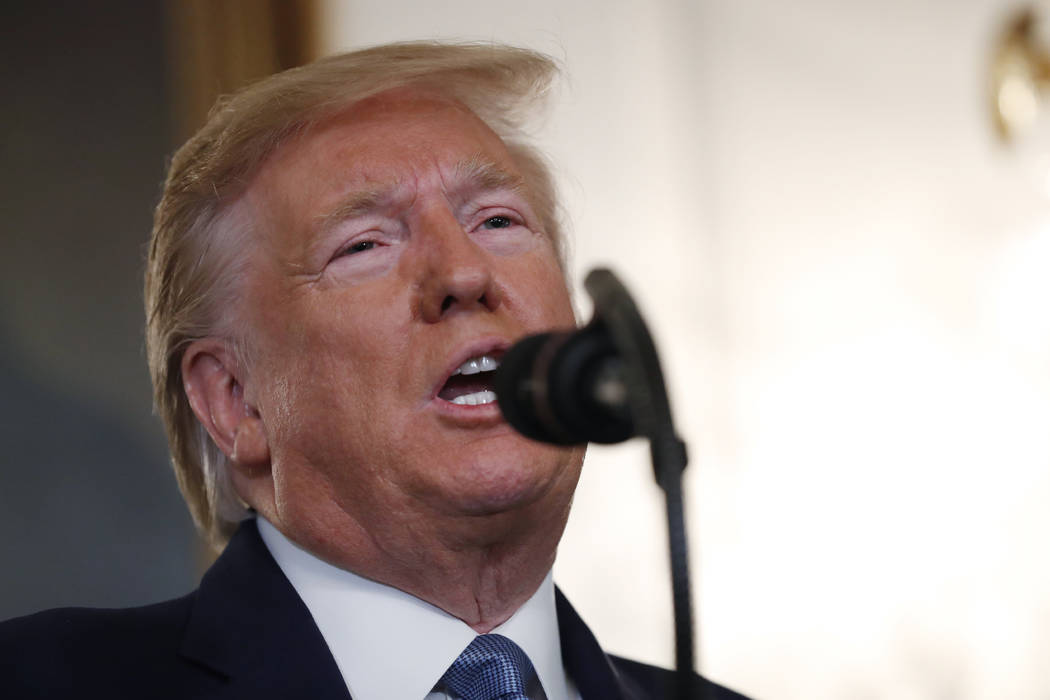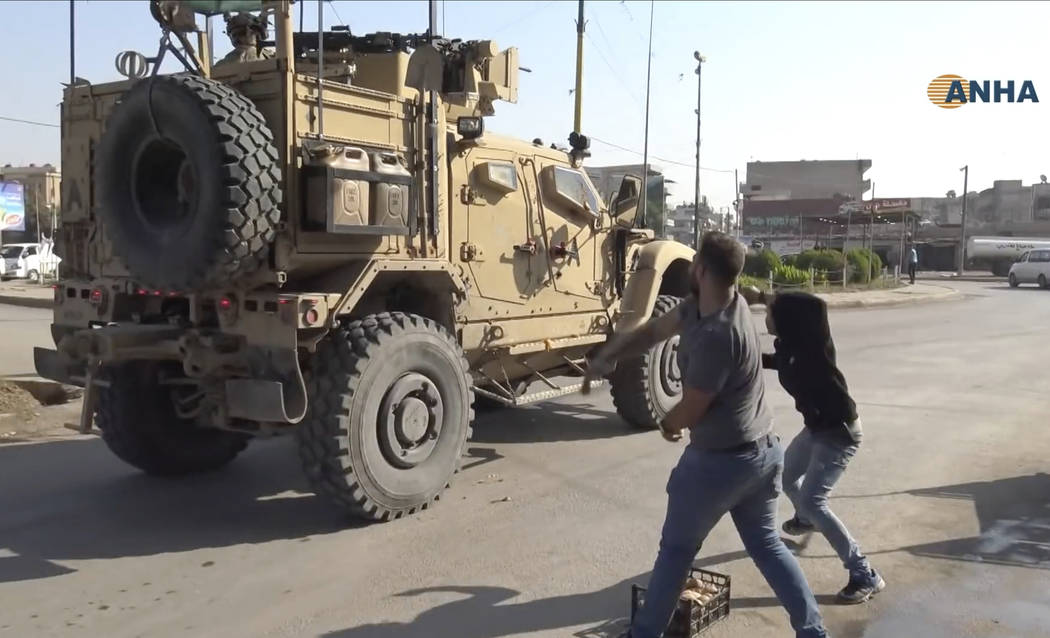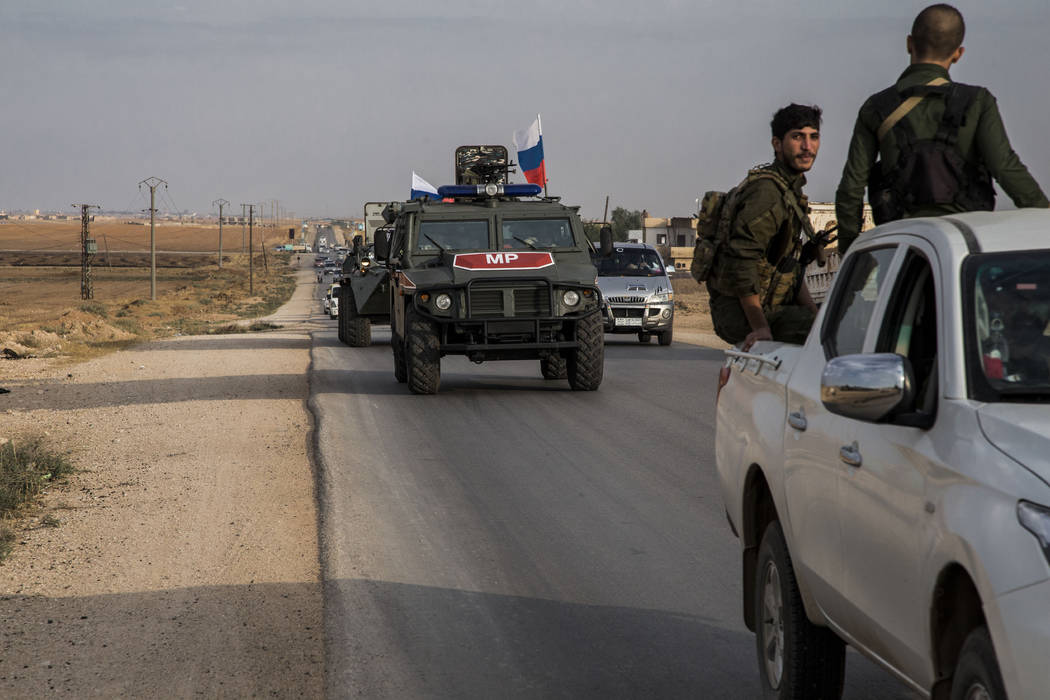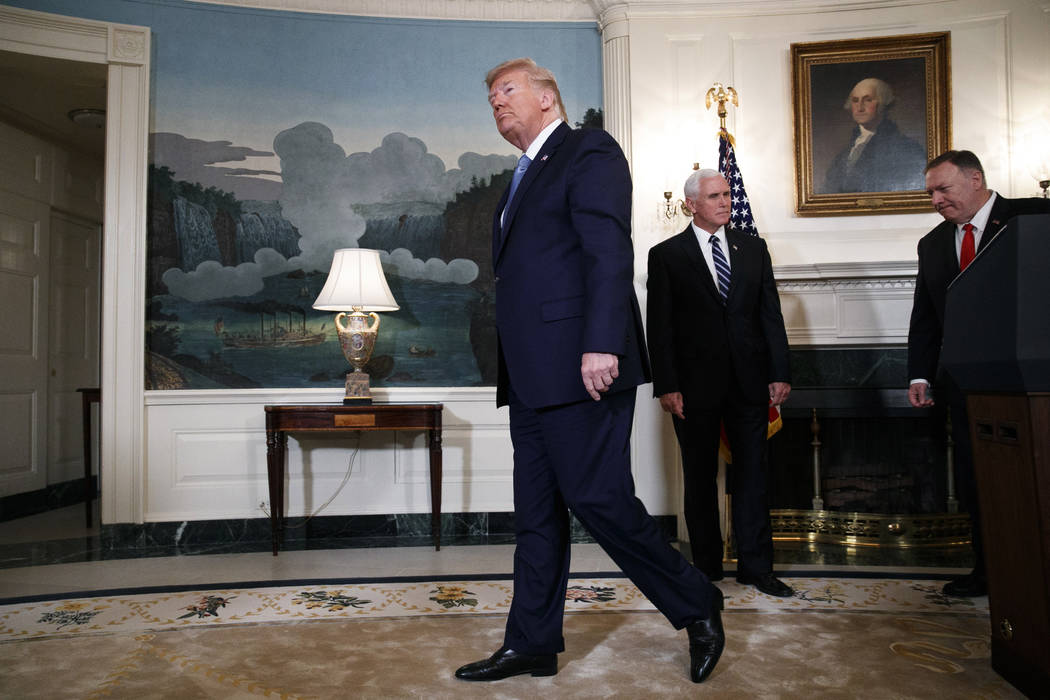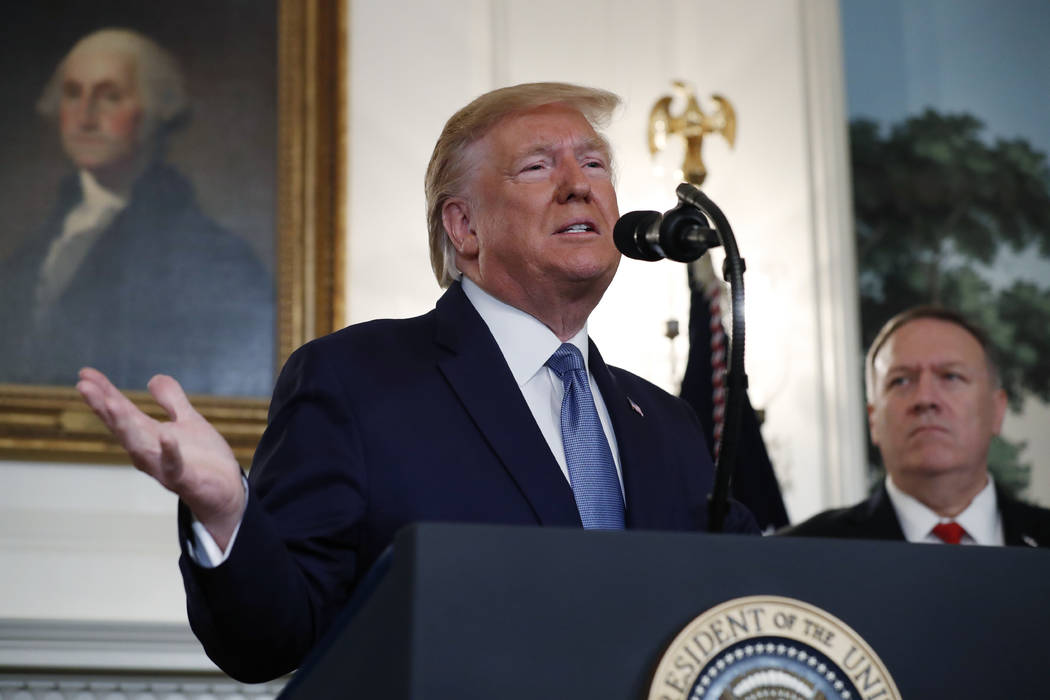After Trump withdrawal, US to send troops to Syria oil fields
WASHINGTON — As Russian and Turkish leaders divvy up security roles in northeast Syria following an abrupt U.S. troop withdrawal, President Donald Trump is focused on oil fields elsewhere in the war-torn country.
Trump spurred a fresh wave of criticism Thursday with a tweet noting that he had spoken with Syrian Kurdish military chief Mazloum Abdi and observing that perhaps “it is time for Kurds to start heading to the Oil Region,” an apparent reference to oil fields in Deir el-Zour province of Syria. That’s an area that U.S. military commanders see as critical to holding off an Islamic State resurgence in the region.
But even as Trump heralded his move to pull nearly all U.S. troops out of what he derided as the “blood-stained sands” of Syria, he’s repeatedly referred to the country’s oil fields as prized land that he’s intent on protecting.
I really enjoyed my conversation with General @MazloumAbdi. He appreciates what we have done, and I appreciate what the Kurds have done. Perhaps it is time for the Kurds to start heading to the Oil Region!
— Donald J. Trump (@realDonaldTrump) October 24, 2019
“We’ve secured the oil, and, therefore, a small number of U.S. troops will remain in the area where they have the oil,” Trump said Wednesday while discussing the pullout of all but 200 to 300 U.S. troops in Syria. “And we’re going to be protecting it, and we’ll be deciding what we’re going to do with it in the future.”
White House officials did not respond to requests for greater clarity about Trump’s tweet suggesting Kurds head to the oil region.
US will send armor, troops
The U.S. will send armored reinforcements into eastern Syria to bolster defenses against a potential move by Islamic State militants on oil fields controlled by American-backed Syrian Kurds, U.S. Defense Secretary Mark Esper said Friday.
Esper described the added force as “mechanized,” which means it likely will include tanks and other combat vehicles such as Bradley armored infantry carriers. This would introduce a new dimension to the U.S. military presence , which largely has been comprised of special operations forces not equipped with tanks or other armored vehicles.
Trump’s decision to withdraw the bulk of roughly 1,000 American troops from Syria drew bipartisan condemnation. The decision came after Turkish President Recep Tayyip Erdogan told Trump earlier this month that he intended to carry out an operation to clear the Turkey-Syria border of Kurdish fighters who fought side-by-side with U.S. troops in beating back IS fighters in northeast Syria.
Lacks full understanding
The Republican president’s comments this week raised fresh concerns that he has an incomplete understanding, or is indifferent to, the fragile dynamics of the region, his critics say.
“The President of the United States of America appears to be calling for a mass migration of Kurds to the desert where they can resettle atop a tiny oil field,” Brett McGurk, Trump’s former special envoy to the global coalition to defeat IS, wrote on Twitter.
But the idea of keeping troops in eastern Syria to guard the oil fields resonated with Trump and presented military commanders with a way to keep at least a residual force inside the country. Besides a presence near the oil fields in eastern Syria, some U.S. forces will remain in southern Syria.
Defense Secretary Mark Esper said that the main goal of the American troop presence is to make sure the Islamic State is contained and unable to gain control of the oil fields and the revenue they generate. The administration also sees some benefit to Kurds being in control of the oil, according to a senior administration official, who briefed reporters on the administration’s deliberations on the Syria withdrawal.
“The Oil Fields discussed in my speech on Turkey/Kurds yesterday were held by ISIS until the United States took them over with the help of the Kurds,” Trump said in another tweet Thursday. “We will NEVER let a reconstituted ISIS have those fields!”
Eastern Syria is the center for what remains of Syria’s oil industry, which although in shambles, remains one of the main sources of revenues for the Kurdish-led administration there.
The Kurdish forces seized control of small oil fields in northeastern Hassakeh province after the government pulled out of most of the Kurdish-majority regions in 2012 to fight rebels elsewhere.
After expelling Islamic State militants from southeastern Syria in 2018, the Kurds seized control of the more profitable oil fields in Deir el-Zour province.
Quiet oil arrangement
A quiet arrangement has existed between the Kurds and the Syrian government, whereby Damascus buys the surplus through middlemen in a profitable smuggling operation that has continued despite political differences. The Kurdish-led administration sells crude oil to private refiners, who use primitive homemade refineries to process fuel and diesel and sell it back to the administration.
The oil was expected to be a bargaining chip for the Kurds to negotiate a deal with the Syrian government, which unsuccessfully tried to reach the oil fields to retake them from IS. With Trump saying he plans to keep forces to secure the oil, it seems the oil will continue to be used for leverage— with Moscow and Damascus.
Before the war, Syria produced around 350,000 barrels per day, exporting more than half of it. Most of that oil came from eastern Syria. Foreign companies, including Total, Shell, and Conoco, all left Syria after the war began more than eight years ago.
Sen. Lindsey Graham, R-S.C., said after meeting with Trump on Thursday that he urged him to stay engaged in Syria.
“If you can find a way to secure the oil fields from Iran and ISIS, that’s in our national security interest,” Graham said.
Russia sends more troops
Russia has sent hundreds of additional troops to Syria to help patrol the country’s Turkey-Syria border after a deal between Moscow and Ankara, the Russian Defense Ministry said Friday.
The ministry said about 300 military police have arrived in Syria to patrol the northeastern areas along the border with Turkey and oversee the pullout of Syrian Kurdish fighters from there. Military cargo planes also airlifted 20 armored vehicles for the mission, it added.
After Turkey invaded northeastern Syria this month, an offensive enabled by Trump’s abrupt pullout of U.S. troops, Moscow and Ankara struck a deal splitting control of northeastern Syria.
The new Russian troops sent in — as American soldiers pull out — further underscore how the situation on the ground in Syria has dramatically changed with Turkey’s invasion and subsequent developments.
Turkey has now been allowed to keep control over a significant chunk of northeastern Syria, a belt of land on its border in the northeast that it invaded on Oct. 9, along with a larger piece of the border in the northwest that Turkey already holds, captured in previous incursions.



